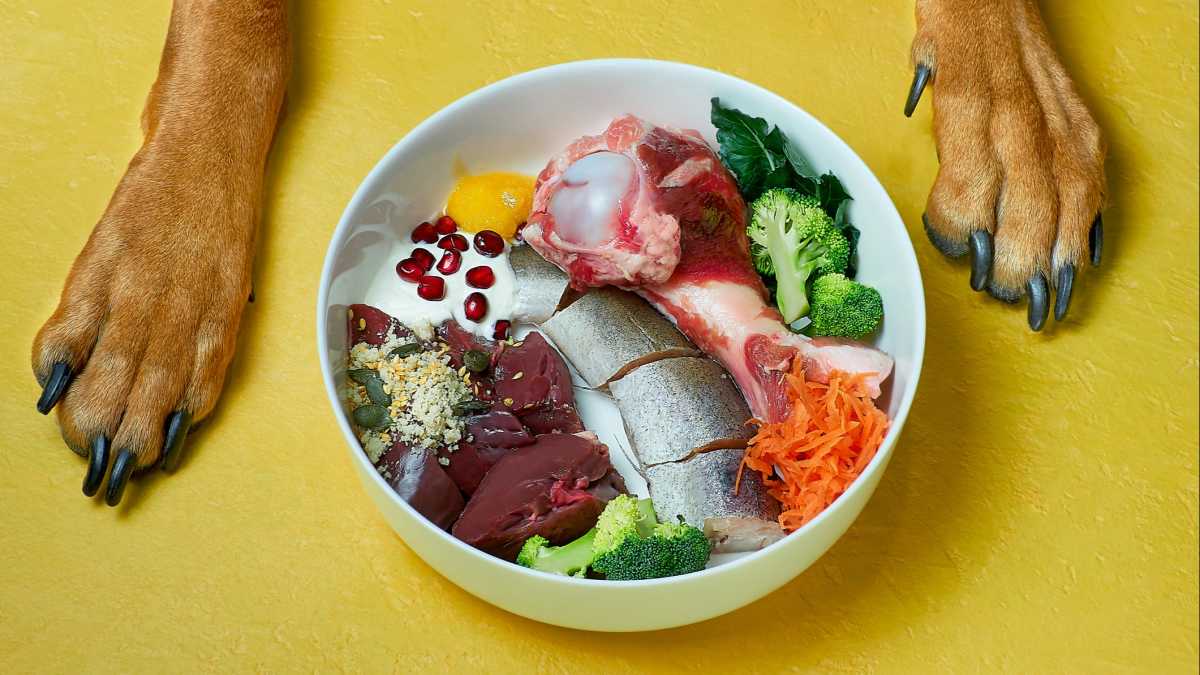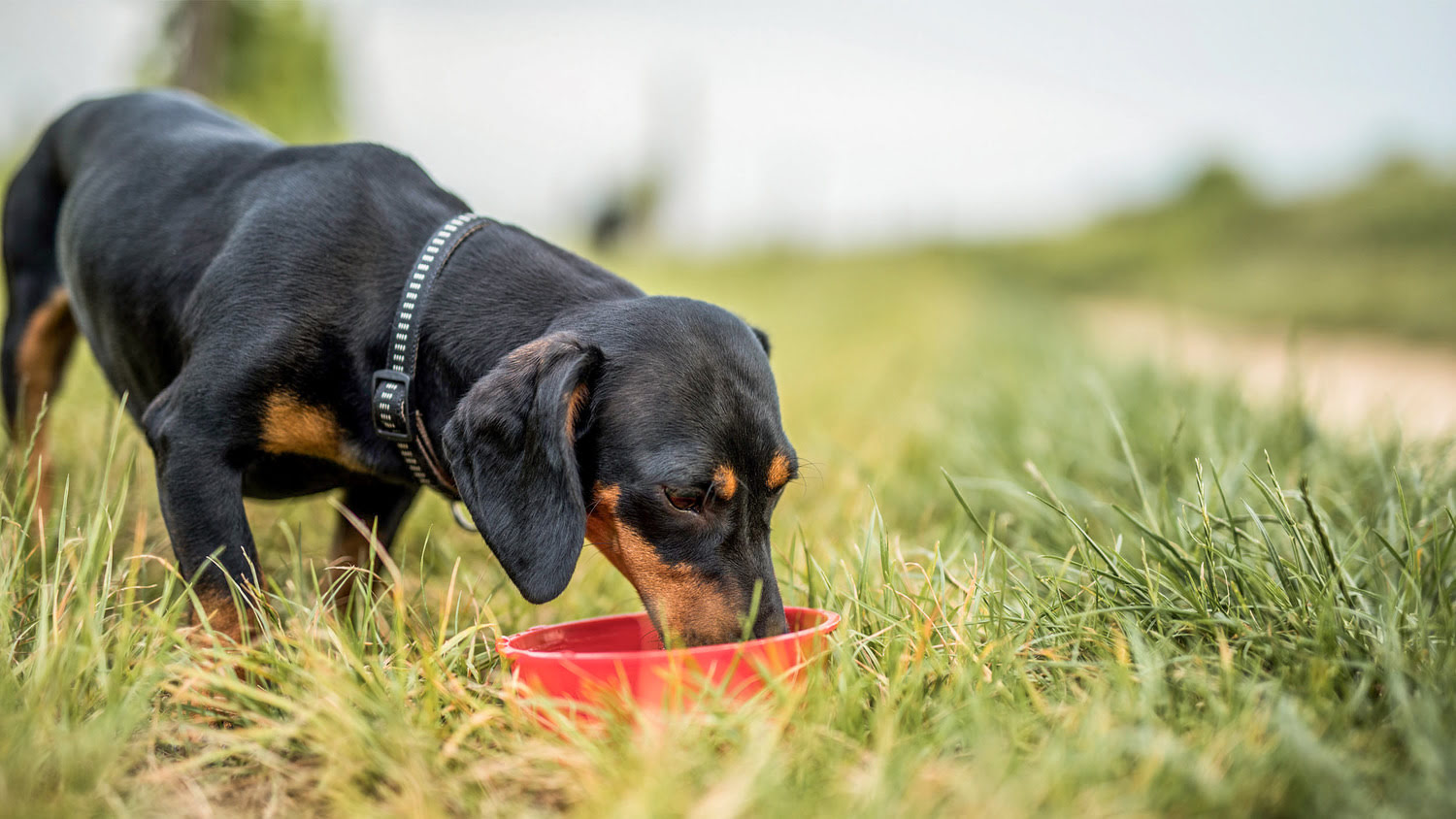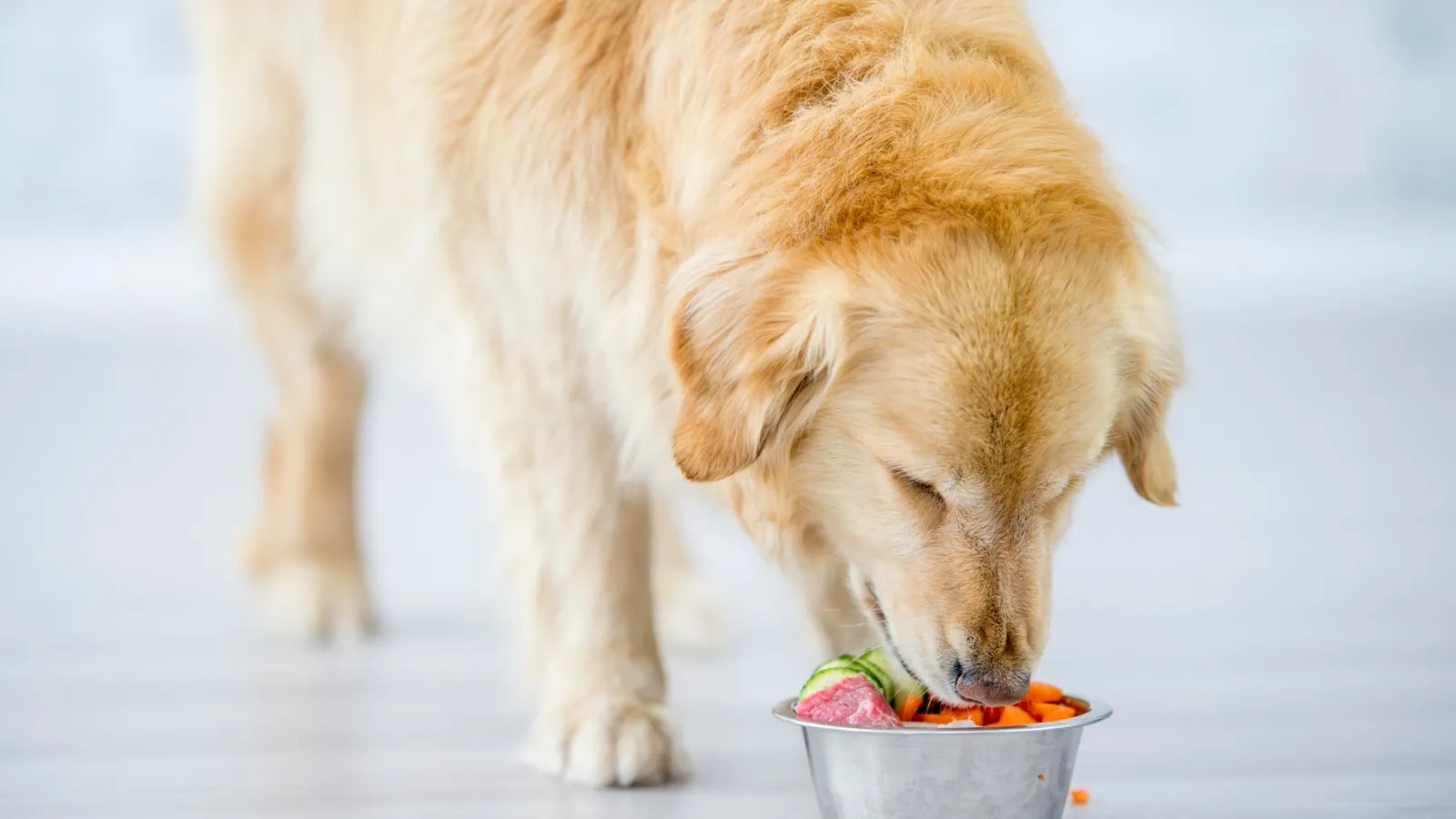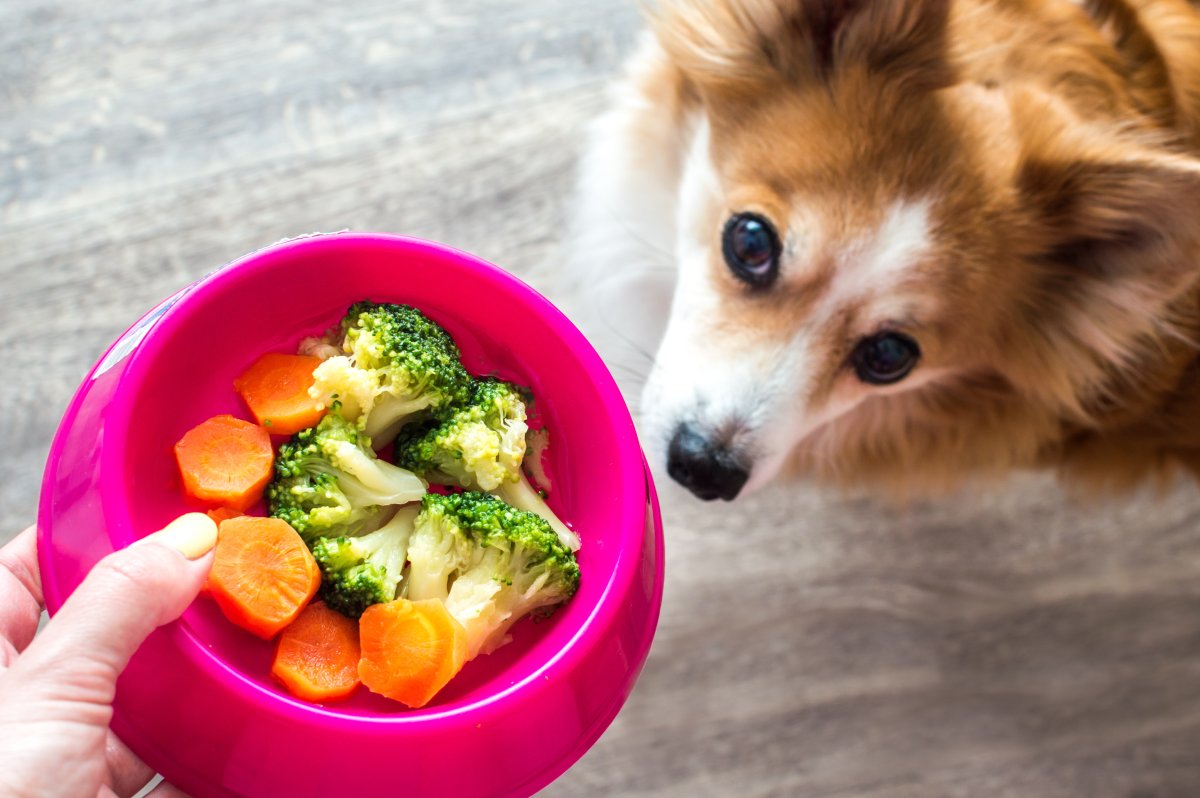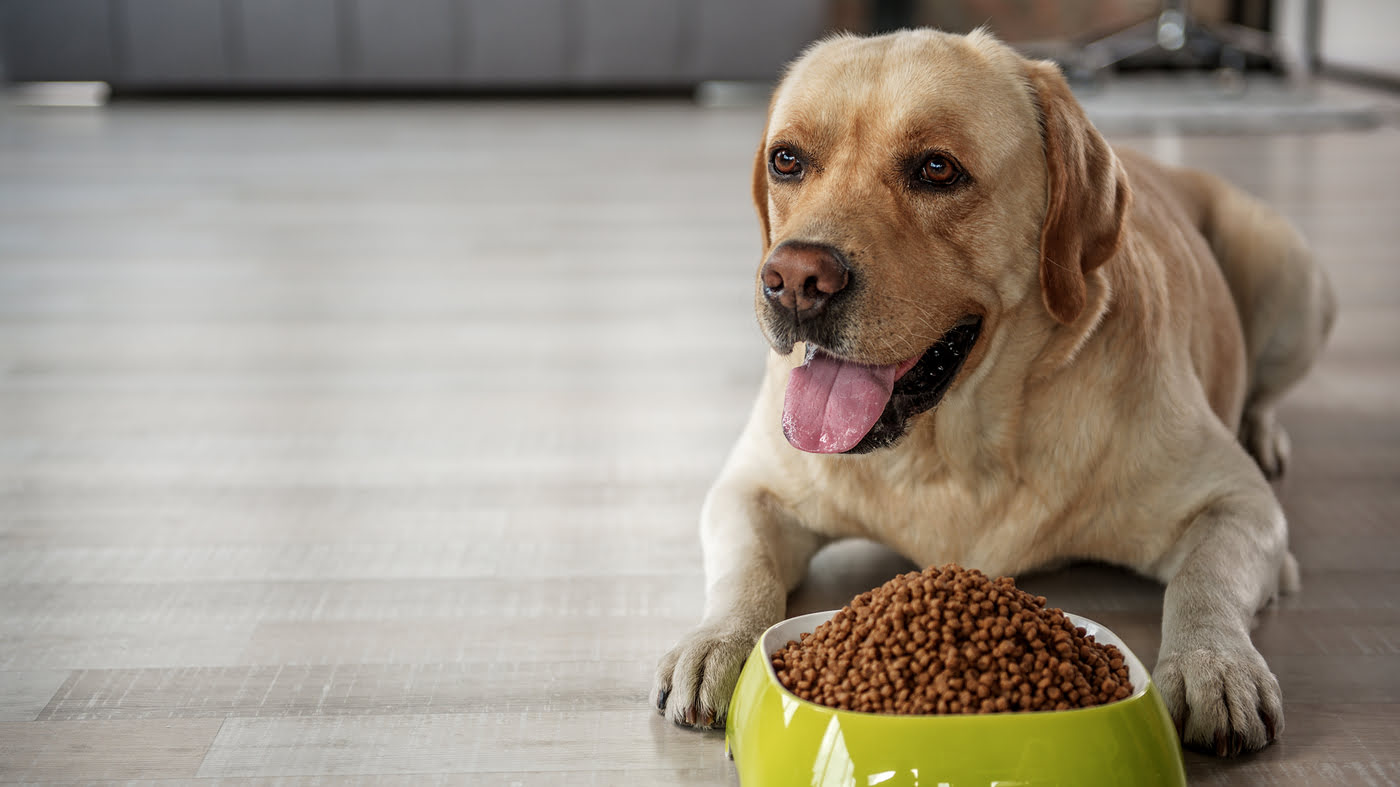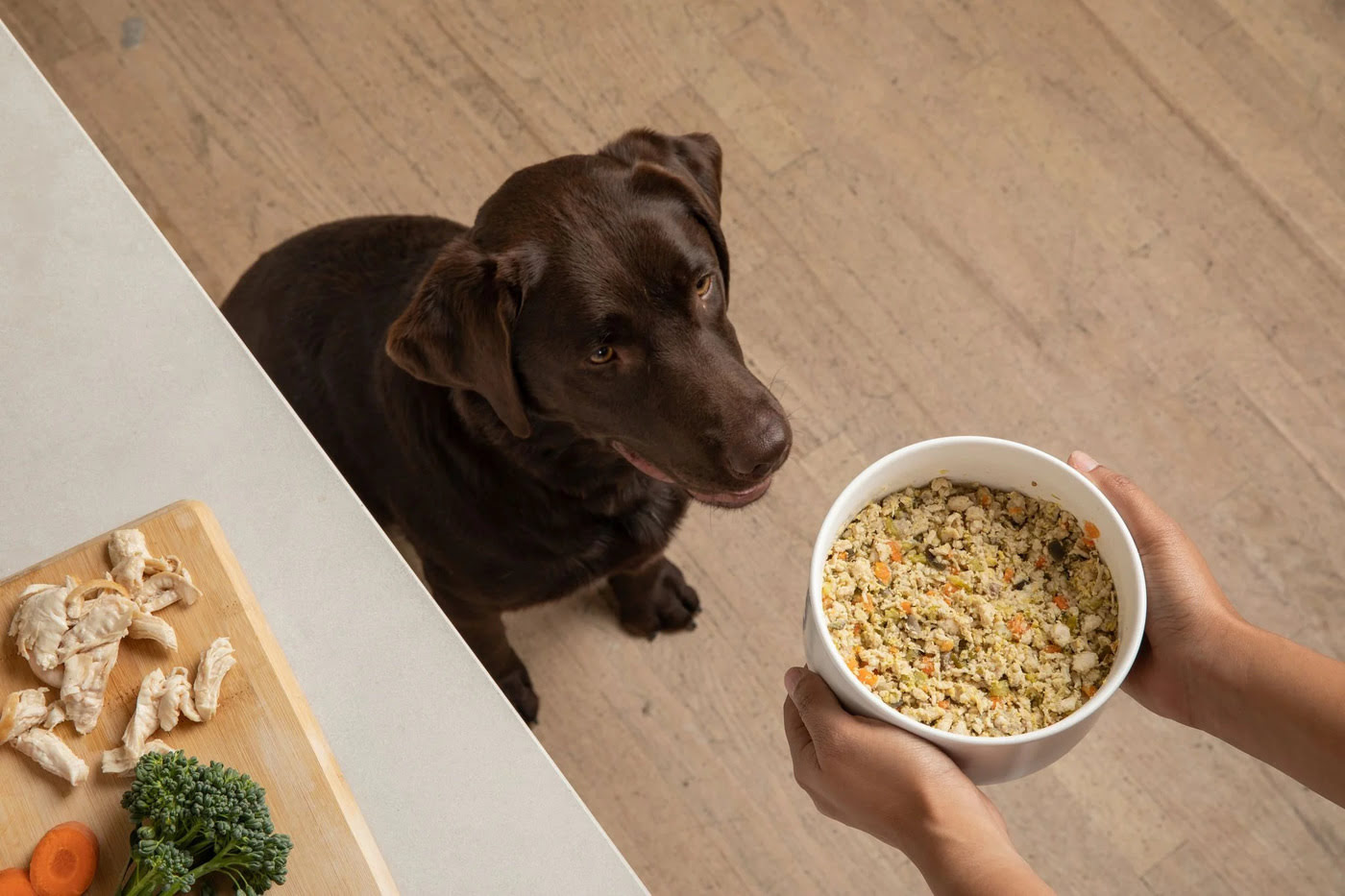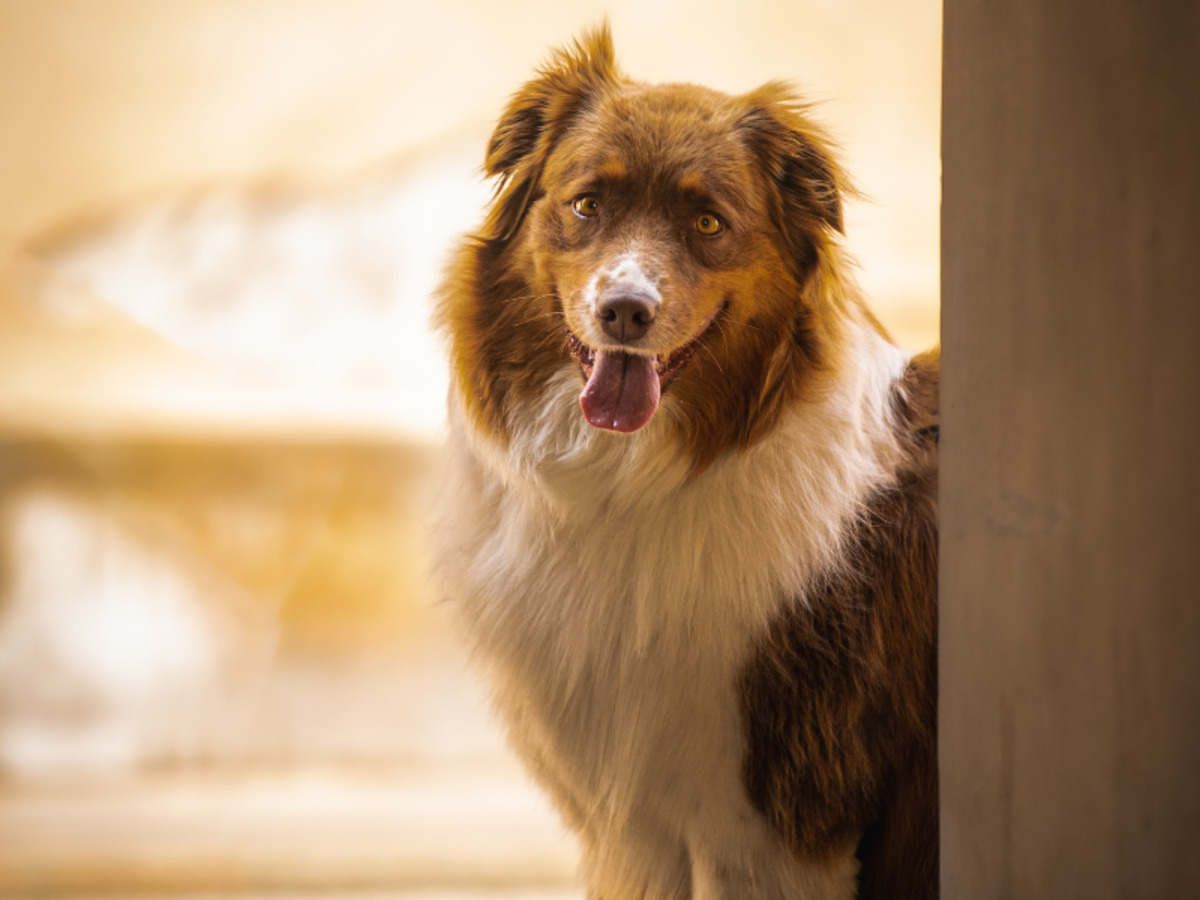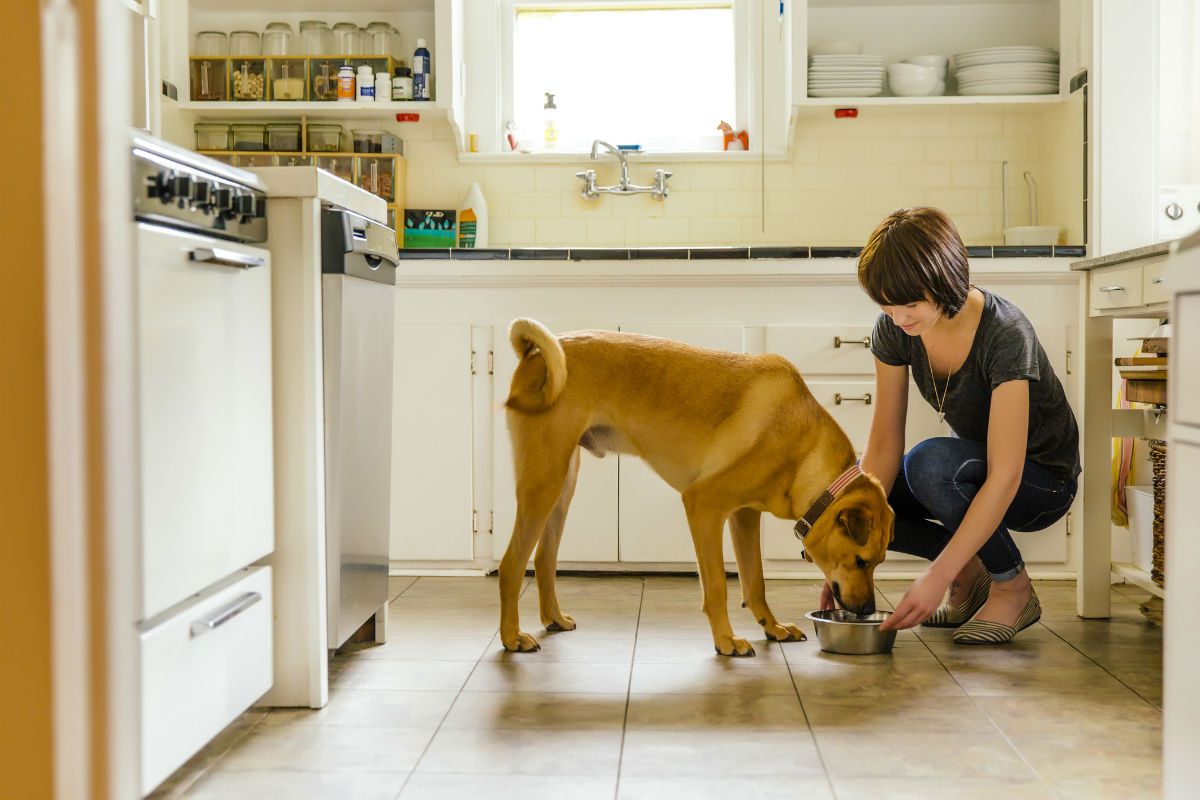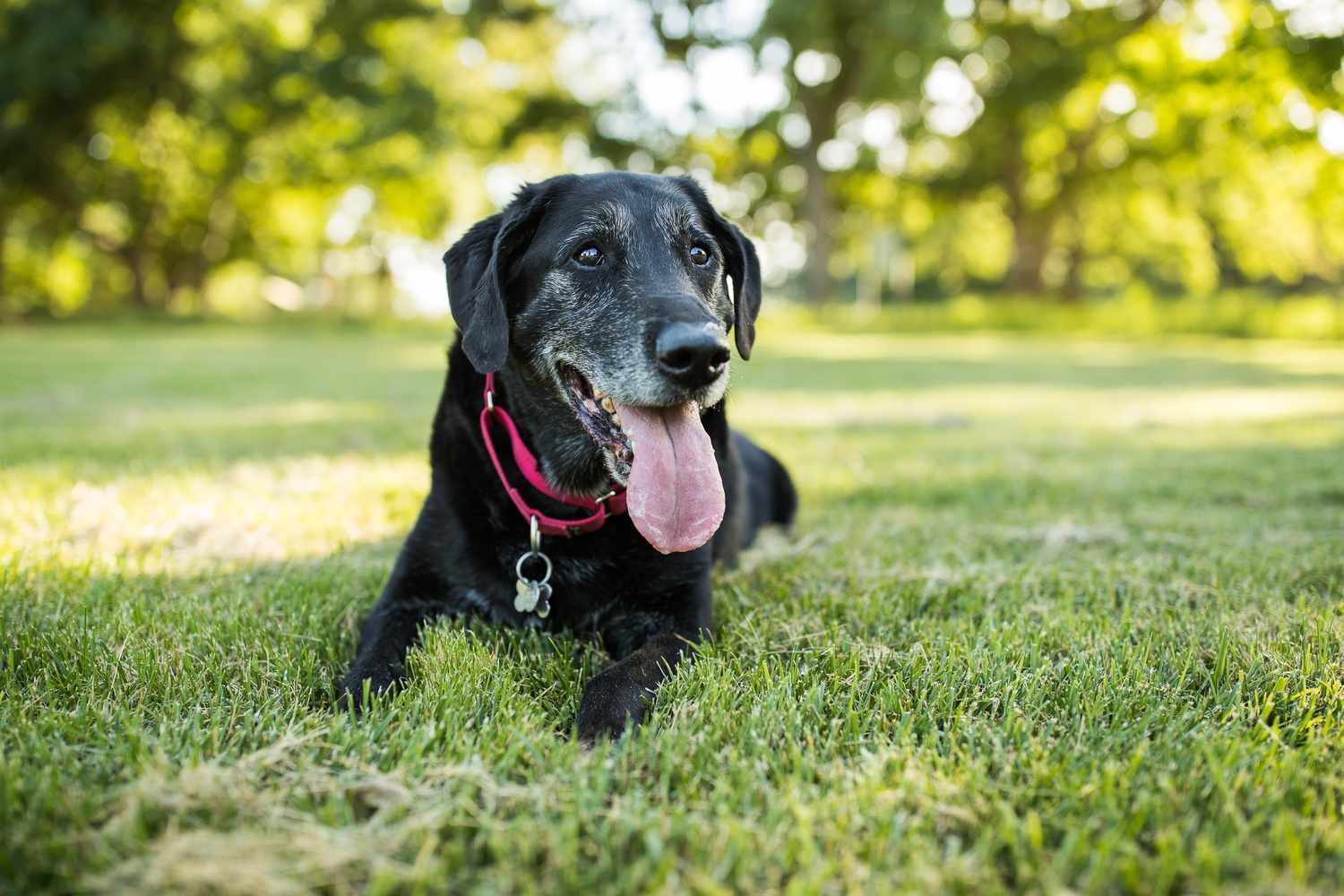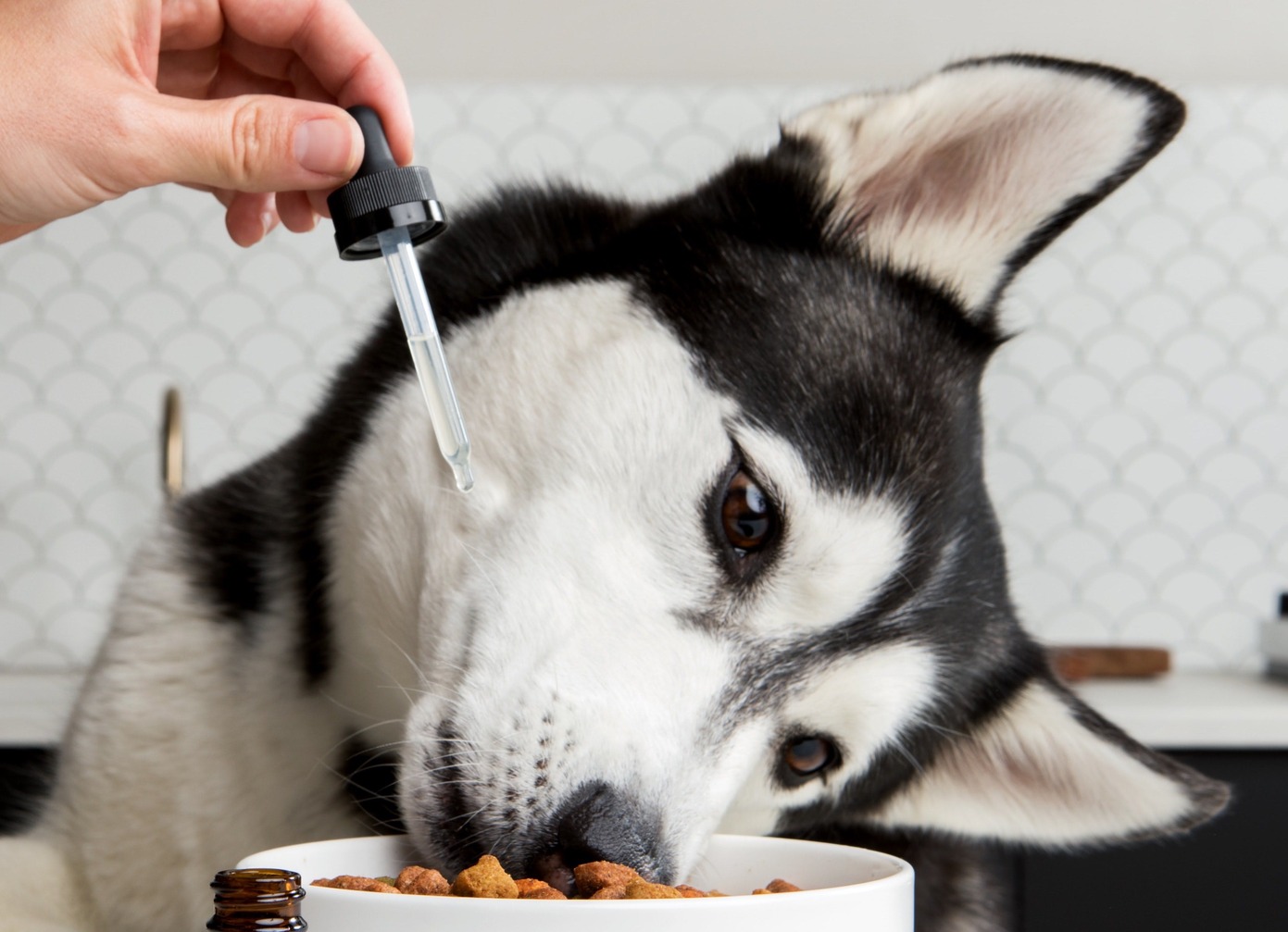Home>Health & Wellness>Behavior & Cognitive Care>What To Feed My Senior Dog With No Teeth
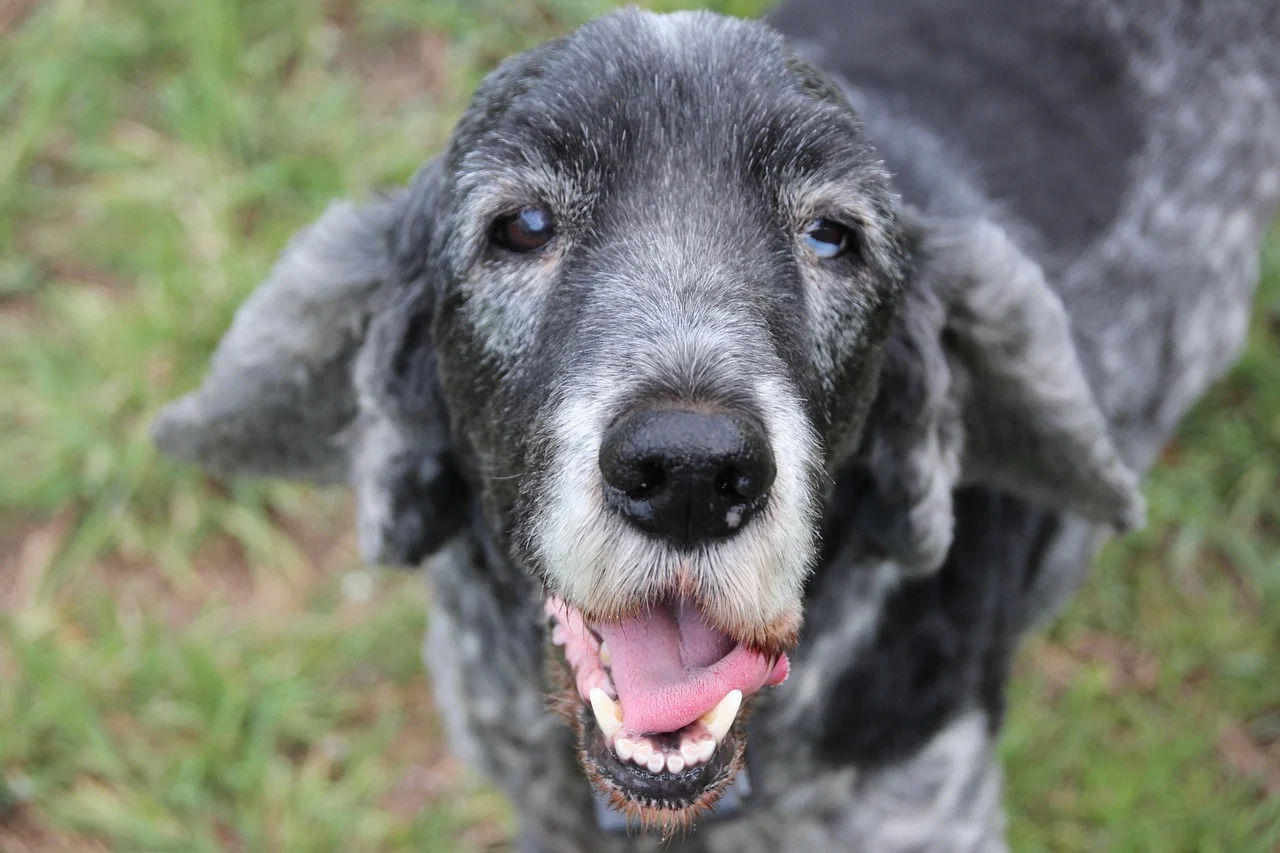

Behavior & Cognitive Care
What To Feed My Senior Dog With No Teeth
Modified: March 1, 2024
Discover the best diet options for your senior dog with no teeth. Learn about behavior and cognitive care to support your furry friend's well-being.
(Many of the links in this article redirect to a specific reviewed product. Your purchase of these products through affiliate links helps to generate commission for Pawsomeoldies.com, at no extra cost. Learn more)
Table of Contents
Introduction
Caring for a senior dog with no teeth requires thoughtful consideration and specialized attention to their dietary needs. As dogs age, they may experience dental issues that can make chewing difficult or even impossible. This can lead to challenges in maintaining proper nutrition and overall health. Fortunately, there are various soft and easily digestible food options available to ensure that your beloved furry companion receives the essential nutrients they need to thrive in their golden years.
Ensuring that your senior dog's diet is tailored to their specific needs is crucial for their well-being. By exploring suitable food options and implementing effective dental care practices, you can help your toothless canine friend enjoy a comfortable and fulfilling life. Let's delve into the various food choices and dental health tips that can support your senior dog's overall wellness.
Soft Food Options
When it comes to providing nourishment for a senior dog with no teeth, soft food options play a pivotal role in ensuring their dietary needs are met. These options are specifically designed to accommodate the challenges associated with dental issues, making it easier for your furry companion to consume their meals comfortably. Here are some soft food choices that can be beneficial for your toothless senior dog:
1. Canned Wet Food
Canned wet food is a popular choice for senior dogs with dental problems. The soft texture of wet food makes it easier for dogs to consume, as it requires minimal chewing. Additionally, wet food often contains higher moisture content, which can contribute to your dog's overall hydration, especially if they have difficulty drinking water independently.
2. Soft Kibble
Some pet food manufacturers offer soft kibble specifically formulated for senior dogs with dental challenges. This type of kibble is designed to be gentler on the gums and easier to chew, making it a suitable option for dogs with missing teeth or sensitive mouths.
3. Fresh Cooked Food
Preparing fresh, soft-cooked meals for your senior dog can be a wholesome and customizable option. Foods such as lean ground meat, cooked vegetables, and soft grains can be combined to create a nutritious and easily digestible meal. This approach allows you to tailor the ingredients to your dog's specific dietary requirements and preferences.
Read more: What To Feed A Dog That Has Allergies
4. Prescription Soft Diets
Veterinarians may recommend prescription soft diets tailored to address specific health concerns while accommodating dental issues. These specialized diets are formulated to provide balanced nutrition while being gentle on the mouth, making them a valuable option for senior dogs with no teeth.
By incorporating these soft food options into your senior dog's diet, you can ensure that they receive the essential nutrients they need while minimizing the challenges associated with dental problems. It's important to consult with your veterinarian to determine the most suitable soft food choices based on your dog's individual health and dietary requirements.
Remember, providing a variety of soft food options can help keep mealtime enjoyable for your senior dog, promoting their overall well-being and quality of life.
Wet Food Options
When it comes to catering to the dietary needs of a senior dog with no teeth, wet food options stand out as a highly suitable choice. The soft and moist texture of wet food makes it effortless for dogs to consume, especially when they encounter challenges with chewing due to dental issues. This category of food not only addresses the nutritional requirements of senior dogs but also helps in maintaining their overall hydration, a crucial aspect of their well-being.
Canned wet food is a prevalent and convenient choice for pet owners with senior dogs facing dental problems. The soft consistency of wet food eliminates the need for extensive chewing, allowing dogs to comfortably consume their meals. Additionally, the higher moisture content in wet food can contribute to the overall hydration of senior dogs, which is particularly beneficial for those who may struggle to drink water independently. This aspect is vital for their overall health, as adequate hydration supports various bodily functions and helps prevent issues such as urinary tract problems.
Furthermore, the availability of a wide range of wet food options in the market allows pet owners to select products that align with their senior dog's specific dietary requirements and taste preferences. Whether it's poultry, beef, fish, or a blend of various ingredients, there are numerous flavors and formulations to cater to different palates and nutritional needs. Additionally, some wet food varieties are enriched with essential vitamins, minerals, and supplements, further enhancing their nutritional value and supporting the overall health of senior dogs.
For pet owners who prefer to provide their senior dogs with a homemade diet, preparing soft, cooked meals can be a wholesome and customizable option. Freshly cooked ingredients such as lean ground meat, cooked vegetables, and soft grains can be combined to create a nutritious and easily digestible meal. This approach allows pet owners to tailor the ingredients to their dog's specific dietary requirements and taste preferences, ensuring that their senior dog receives a well-rounded and enjoyable meal.
In addition to commercial wet food options, some veterinarians may recommend prescription soft diets tailored to address specific health concerns while accommodating dental issues. These specialized diets are formulated to provide balanced nutrition while being gentle on the mouth, making them a valuable option for senior dogs with no teeth.
By incorporating these wet food options into the diet of senior dogs with dental challenges, pet owners can ensure that their beloved companions receive the essential nutrients they need while minimizing the difficulties associated with dental problems. It's essential to consult with a veterinarian to determine the most suitable wet food choices based on the individual health and dietary requirements of each senior dog.
Providing a variety of wet food options not only supports the nutritional needs of senior dogs but also contributes to their overall well-being and quality of life.
Homemade Food Options
Homemade food options offer a personalized and nourishing approach to catering to the dietary needs of senior dogs with no teeth. By preparing fresh, soft-cooked meals at home, pet owners can ensure that their beloved companions receive a wholesome and easily digestible diet tailored to their specific requirements.
When crafting homemade meals for senior dogs, it's essential to prioritize ingredients that are gentle on the mouth and provide essential nutrients. Lean ground meat, such as turkey or chicken, serves as an excellent source of high-quality protein, which is vital for maintaining muscle mass and overall health in senior dogs. Additionally, cooked vegetables, including carrots, green beans, and sweet potatoes, offer essential vitamins, minerals, and dietary fiber, contributing to a well-rounded and nutritious meal.
Incorporating soft grains, such as rice or oatmeal, into homemade meals can further enhance the nutritional value while ensuring that the food is easily digestible for senior dogs. These grains provide a source of carbohydrates, which can offer sustained energy and support digestive health. Moreover, the soft texture of cooked grains aligns with the dietary needs of senior dogs with dental challenges, making mealtime a comfortable and enjoyable experience.
Pet owners can customize homemade meals based on their senior dog's taste preferences and dietary sensitivities. By avoiding ingredients that may cause discomfort or digestive issues, such as hard bones or excessively tough cuts of meat, pet owners can create meals that are gentle on the mouth and easy to consume. Additionally, incorporating small amounts of healthy fats, such as olive oil or fish oil, can contribute to skin and coat health, especially beneficial for senior dogs with aging skin and fur.
Furthermore, homemade meals allow pet owners to monitor and adjust portion sizes according to their senior dog's individual needs, supporting weight management and overall health. This level of control enables pet owners to adapt the meal plan as necessary, ensuring that their senior dogs receive the appropriate caloric intake without overexerting their dental limitations.
In summary, homemade food options provide a flexible and personalized approach to meeting the dietary needs of senior dogs with no teeth. By incorporating high-quality ingredients and tailoring meals to their specific requirements, pet owners can ensure that their senior dogs receive a nourishing and enjoyable dining experience, promoting their overall well-being in their golden years.
Dental Health Tips
Maintaining good dental health is crucial for senior dogs, especially those with no teeth or dental challenges. While providing appropriate soft food options is essential, implementing effective dental care practices is equally important to support their overall well-being. Here are valuable dental health tips to ensure the oral health of senior dogs:
-
Regular Dental Check-ups: Schedule routine dental check-ups with a veterinarian to monitor the oral health of senior dogs. Professional dental examinations can help identify any underlying issues, such as gum disease or oral infections, and facilitate timely intervention.
-
Dental Hygiene Products: Utilize dental hygiene products specifically designed for dogs, such as enzymatic toothpaste and soft-bristled toothbrushes. Regular brushing, even in the absence of teeth, can help maintain gum health and prevent plaque buildup, contributing to overall oral hygiene.
-
Dental Chews and Toys: Offer dental chews and toys that are suitable for senior dogs with dental challenges. These specially designed products can help promote gum stimulation and reduce plaque accumulation, supporting oral health while providing mental stimulation.
-
Water Additives: Consider using water additives formulated to support dental health. These additives can help control bacteria in the mouth and reduce plaque formation, contributing to improved oral hygiene for senior dogs.
-
Professional Dental Cleanings: When recommended by a veterinarian, schedule professional dental cleanings for senior dogs. These cleanings can address any accumulated tartar and plaque, promoting oral health and preventing potential dental issues.
-
Monitor Oral Discomfort: Be attentive to signs of oral discomfort or pain in senior dogs. Changes in eating habits, excessive drooling, or pawing at the mouth may indicate underlying dental issues, necessitating prompt veterinary attention.
By incorporating these dental health tips into the care routine of senior dogs with no teeth, pet owners can actively contribute to their oral health and overall well-being. Prioritizing dental care alongside suitable soft food options ensures that senior dogs receive comprehensive support for their specific needs, allowing them to enjoy a comfortable and fulfilling life in their golden years.
Read more: Why Is My Senior Dog Biting?
Conclusion
In conclusion, caring for a senior dog with no teeth involves a combination of thoughtful dietary choices and proactive dental care. The journey of providing nourishment for these beloved companions extends beyond mere sustenance; it encompasses the nurturing of their overall well-being and quality of life. By exploring the diverse soft food options, including canned wet food, soft kibble, fresh cooked meals, and prescription diets, pet owners can ensure that their toothless senior dogs receive the essential nutrients they need in a manner that is gentle on their mouths and digestive systems.
The consideration of wet food options, with their soft and moist texture, presents a valuable solution for addressing the dietary needs of senior dogs with dental challenges. This category of food not only supports their nutritional requirements but also contributes to their overall hydration, a crucial aspect of their well-being. Additionally, the availability of a wide range of wet food flavors and formulations allows pet owners to tailor their senior dog's meals to align with their individual preferences and dietary sensitivities.
Furthermore, the option of preparing homemade meals offers a personalized and nourishing approach to catering to the dietary needs of senior dogs with no teeth. By incorporating high-quality ingredients and tailoring meals to their specific requirements, pet owners can ensure that their senior dogs receive a wholesome and enjoyable dining experience, promoting their overall well-being in their golden years.
In addition to addressing dietary needs, implementing effective dental care practices is essential for supporting the oral health of senior dogs. Regular dental check-ups, the use of dental hygiene products, offering dental chews and toys, and monitoring oral discomfort are crucial aspects of maintaining good dental health for senior dogs with no teeth.
By prioritizing both suitable soft food options and proactive dental care, pet owners can actively contribute to the well-being of their senior dogs, ensuring that they enjoy a comfortable and fulfilling life in their golden years. It is important to consult with a veterinarian to tailor the dietary and dental care approach to the specific needs of each senior dog, ultimately fostering a nurturing and supportive environment that honors their companionship and enriches their lives.
